[2nd Update: The workshop has taken place and we had a great time! You can find a one-sided version of “Touchy Feely”, the zine we created during and after the workshop, here (PDF, 17 MB). We are working on a descriptive version of the zine to make the contents and experience available to a wider audience.]
[UPDATE: Submission date has been postponed from July 16 to July 23, 2024. Notifications will be sent out before July 29, so the early bird registration fee will still apply. Please note that submissions to this workshop will not be included in the proceedings.]
Materials are multifunctional resources that can serve as data, methods, processes, and outcomes of Human-Computer Interaction (HCI) projects.
In this full-day in-person workshop, we reflect on materials and tangible artifacts: how we use them in our practice, what they mean to us, what we criticize, what we dream of. Our aim is to support aesthetic expression and material sensitivity in HCI, and cement the importance of tangibility.
Together, we will co-create a zine that will be published physically during the conference, and made available digitally after.
Call for Participation
In this full-day workshop, we will talk about tangible elements of our work: probes, assistive technologies, paper prototypes, design workshops, written text, videos, prototypes, etc. We want to reflect on tangible artifacts1 and materials, what they mean to us, what we criticize about them, what we dream of. Together, we will create a zine, supporting aesthetic expression and constructing an enjoyable physical artifact. We invite interested parties to submit one page (A4, one-sided) via Conftool (as track, select MCI-WS103) until 11.59 pm on July 16 23, 2024 (AoE). The submission should include a brief self-introduction and description of a tangible artifact the participant could bring along. The artifact can be an object, images, a story, a problem, an idea, a drawing, or something else that relates to tangibility and research. The organizers will select up to 15 participants based on the relevance of their submissions. Submissions may be made in any language. We ask for translation of relevant text to German or English where applicable.
The workshop language will be English. At least one author of each accepted submission must attend the workshop and register for at least one day of the conference. Accepted submissions, content created during the workshop, and a summary by the organizers will together be published in a zine after the workshop. If you have any questions, do not hesitate to reach out to muc-workshop@div.uber.space.
Prompt Questions
- What objects have (had) an impact on your research, and what role did their materiality play in this? Examples: a specific book, your first 3D print, an artifact from one of your earlier projects, …
- What material is/was important in your research, and why? Examples: building bricks in pleasing colors, a box of crafting materials that feel just right in your hands, a deck of cards that helps your research partners think about the topic at hand, …
- Which objects or materials do you treasure or care a lot about in a work context, and why? Examples: souvenirs from a specific person, time or place, inspirational works by other people, the perfect fit to your target group’s needs and preferences.
- How does material/how do objects relate to you and your work? Example: a space you have conducted research in, a recording device you use during your interviews, a library where you spent countless hours researching, writing, thinking, …
Workshop Activities and Tentative Plan
Length: Full-Day, on 1st September 2024, at 9.00 – 16.00 hrs (details below)
Mode: In-person presence
Material: crafting/drawing material provided by organisers, bringing your own material is welcomed
| Before the conference | Participants apply by submitting an A4 page with a case study |
| on the day, 09:00-10:30 | Free-form show & tell of participants case studies, initial discussions |
| 10:30-10:45 | Coffee Break |
| 10:45-12:00 | Re-tell & re-mix: presentation of aspects of others’ case studies that resonated |
| 12:00-13:00 | Lunch Break, organizers prepare group sessions |
| 13:00-14:30 | Hack & create2: in interest-based groups, work on group pages for zine |
| 14:30-14:45 | Coffee Break (optional) |
| 14:45-16:00 | Groups present and discuss their creations, wrap-up |
| After the workshop | Collation of pages into zine by organisers |
A PDF version of the workshop description submitted to Mensch und Computer with more details on the planned workshop activities can be downloaded here (PDF, 9 MB).
Figure 1 offers visual examples from our work with different materials, the different purposes of research we used them for and the different experiences we have had with the richness of expressive materials: Sabrina designed and used cards to engage participants in the sensitive topic of gender inequalities. Janis collaborated with a Men’s Shed by co-producing a brochure that served her data-collection and their promotion endeavors. Kay highlights the expression of care through the aesthetics of beautifully designed research booklets they received from a friend working on an investigative design project3, compared to booklets they themself made within the resource constraints and priorities of an academic research project. Angelika has used textile exploration and storytelling with women in difficult life situations to co-develop spaces of care, wellbeing, and inclusion in heritage organizations. Irene’s work on a functional embroidered computer critiques the dominant aesthetic of technology.
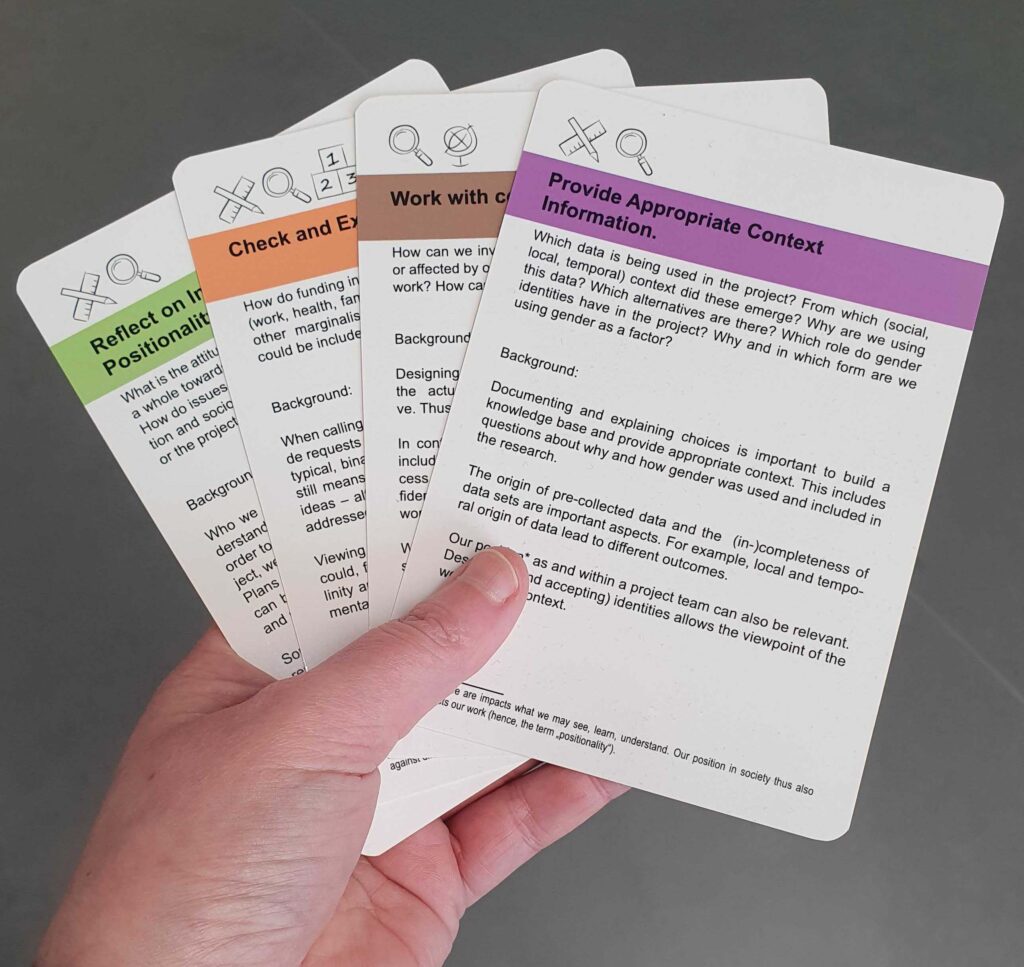
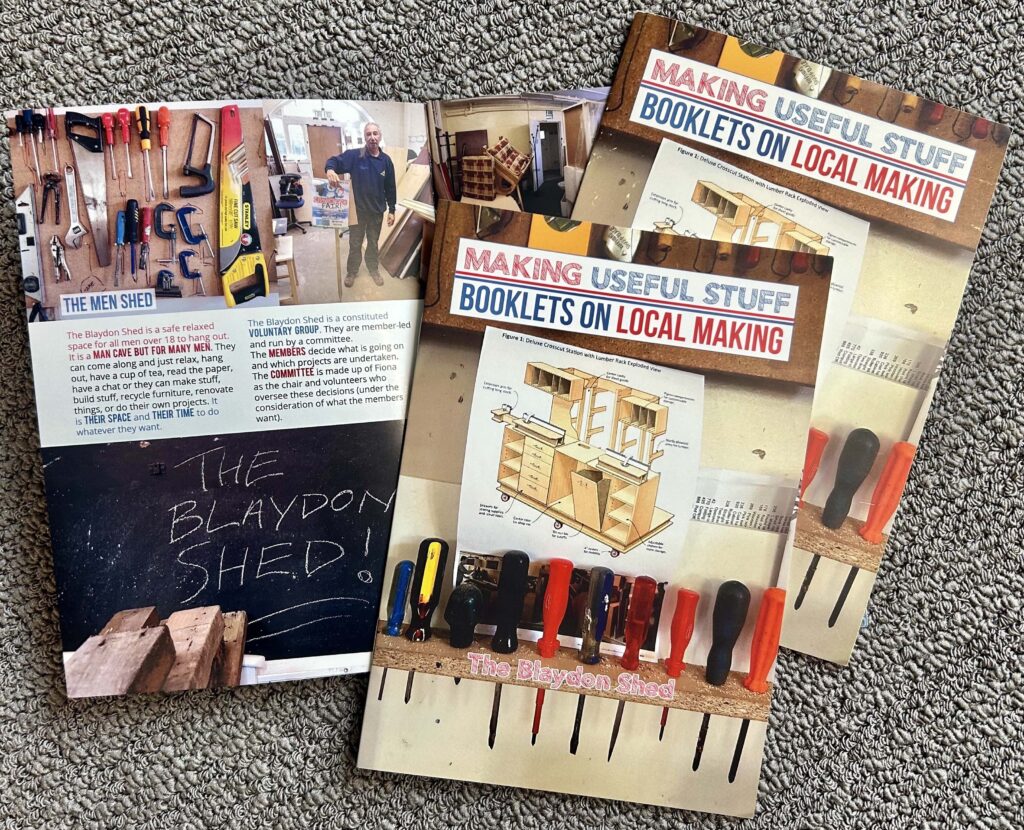
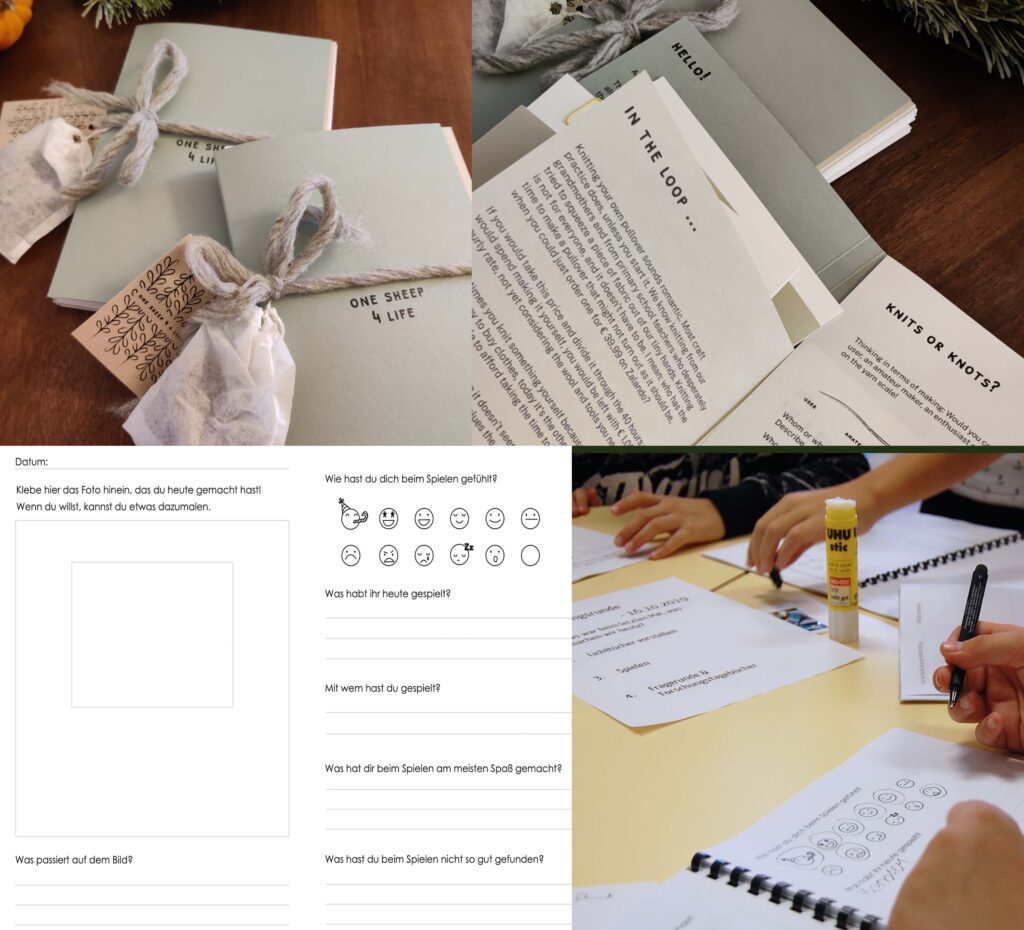
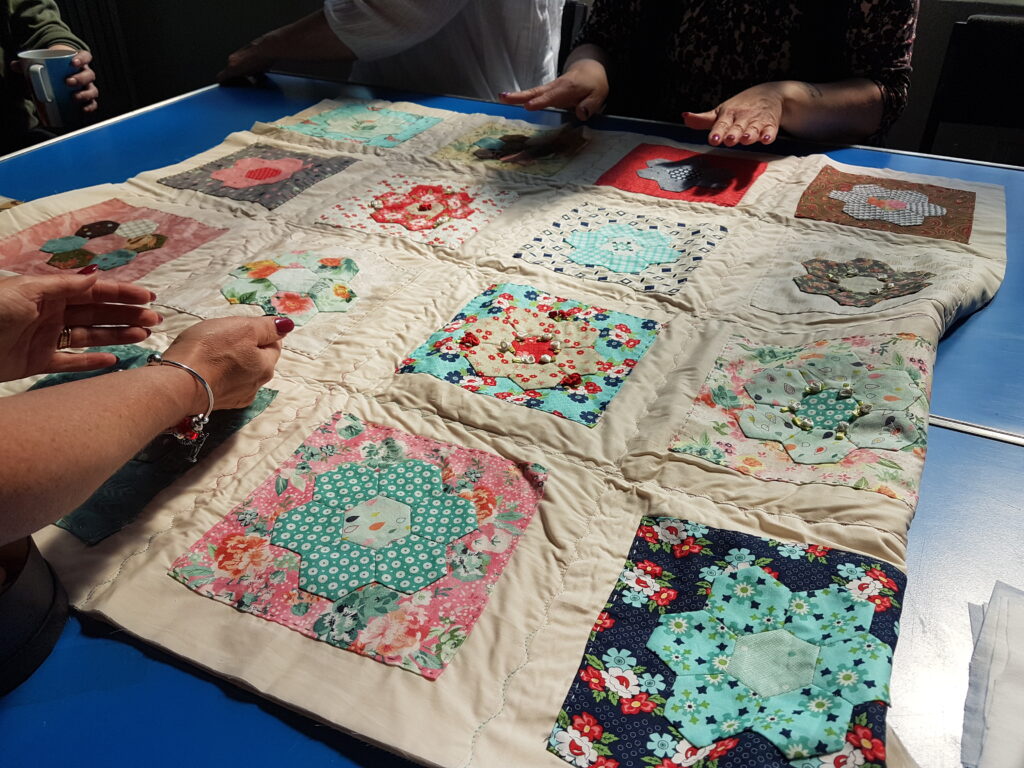
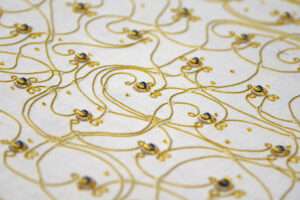
Organizers
The organizers are sorted alphabetically by last name.
Sabrina Burtscher
Sabrina is a PhD student at Karlsruhe Institute of Technology, and holds a MSc in Media and Human-Centered Computing from TU Wien. Her thesis included creating a deck of cards representing a set of recommendations on how to make HCI research more inclusive ([ 1 ]). The card deck was created based on the assumption (and observation) that people think differently when they have something tangible to keep their hands occupied and their minds focused. Her PhD research will study support technologies for neurodivergent workers, centering their needs, preferences, and self-determination.
Kay Kender
Kay holds a Master’s in industrial design from the Design Investigations studio at the University of Applied Arts Vienna. Previous projects they have worked on include social design with housebound participants4, participatory design with neurodiverse groups of elementary school children [6 ] and speculative design cripping assistive technologies [ 7]. Kay’s PhD project examines Design Power and social media, and reflects their ongoing issues with the drop of importance of aesthetics (in every meaning of the word) in academia compared to design work outside academia [5].
Janis Meissner
Janis is a postdoc researcher at the HCI research group of TU Wien. She obtained her doctoral degree in Digital Civics at Open Lab (Newcastle University) and holds a MSc in Media Informatics. Her research explores productive creative practices of non-expert technology users and their ways of meaning-making with digital tools — such as yarnbombers engaging in activism with knitting needles and online platforms [ 8]; people with disabilities using 3D-printers for ’empowering hacks’ [9, 10 ]; charity workers, service users and quilters creating a touch-interactive e-textile blanket [15 ]; organizers and users of a Men Shed combining traditional craft skills with new digital technologies.
Irene Posch
Irene Posch is Professor at the Department of Design and Technology at the University of Arts Linz, Austria, where she directs the Crafting Futures Lab. Her research and practice explore the integration of technological development into the fields of art and craft, and vice versa, and social, cultural, technical and aesthetic implications thereof. She has previously co-organized workshops at CHI, PD, and TEI.
Angelika Strohmayer
Angelika is an Assistant Professor and co-lead of the Design Feminisms Research Group at Northumbria University’s School of Design. Her research explores material co-exploration with community groups. Often, her work relates to the design, facilitation, and reflection on support services for people in difficult life situations (e.g. homelessness, experiences of interpersonal and systemic violence, engagement with the criminal system). Ultimately, she is interested in how these co-produced material explorations can facilitate inclusion in exclusionary spaces and decisionmaking rooms, as well as movements towards more socially just worlds.
- We intentionally and explicitly want to focus on both materials and tangible objects in this workshop. ↩︎
- Term chosen to make visible the re-configuration and appropriation of existing materials to fit our needs and preferences. ↩︎
- One Sheep for a Lifetime by Alexandra Fruhstorfer et al., https://onesheepforalifetime.com ↩︎
- http://kaykender.de/1070-unseen/ — A non-academic project for the Vienna Design Week. ↩︎